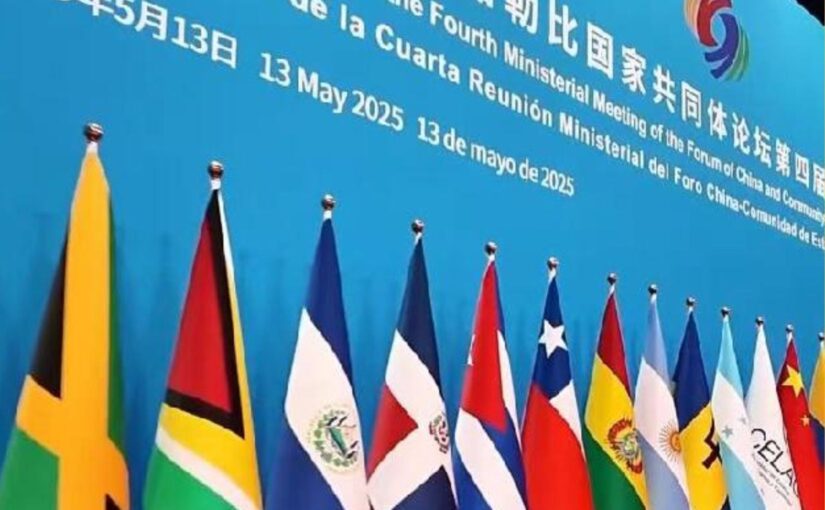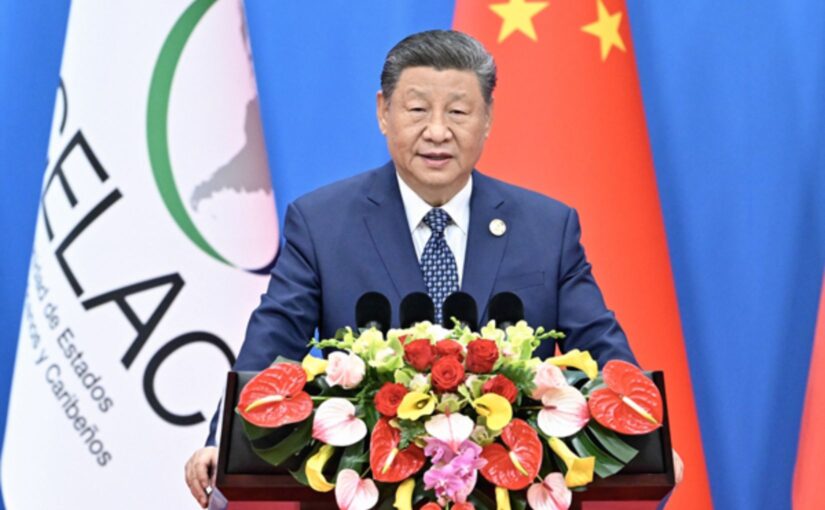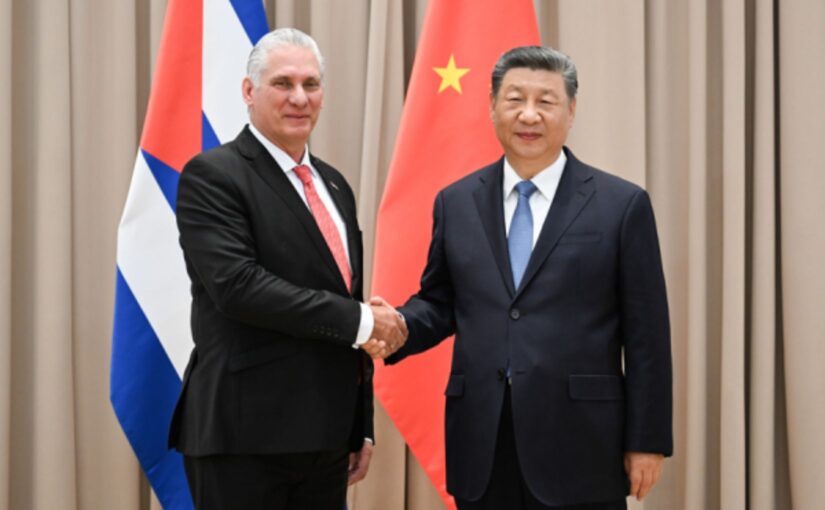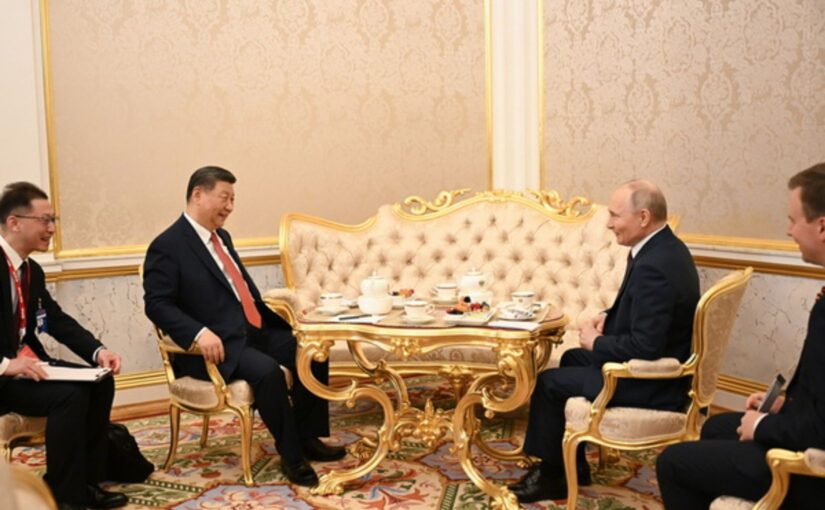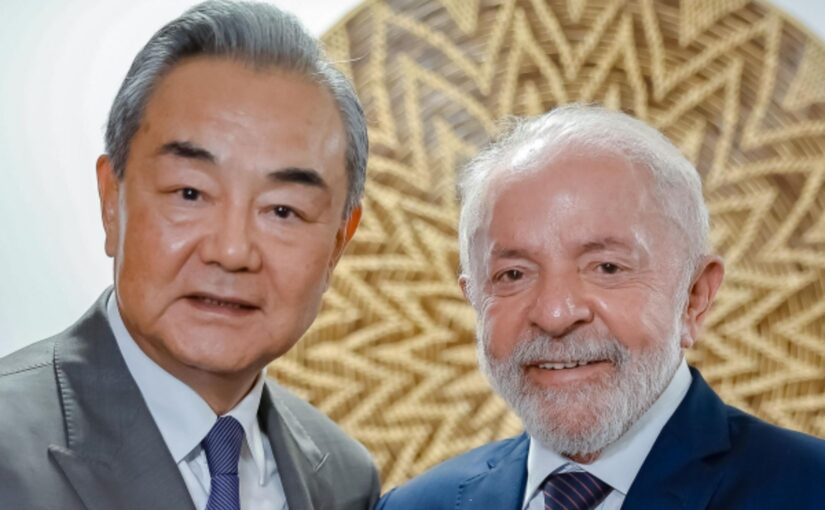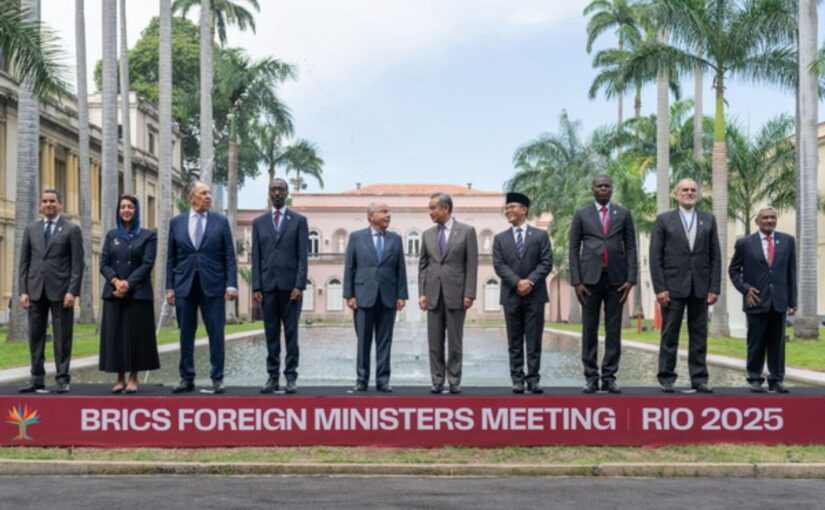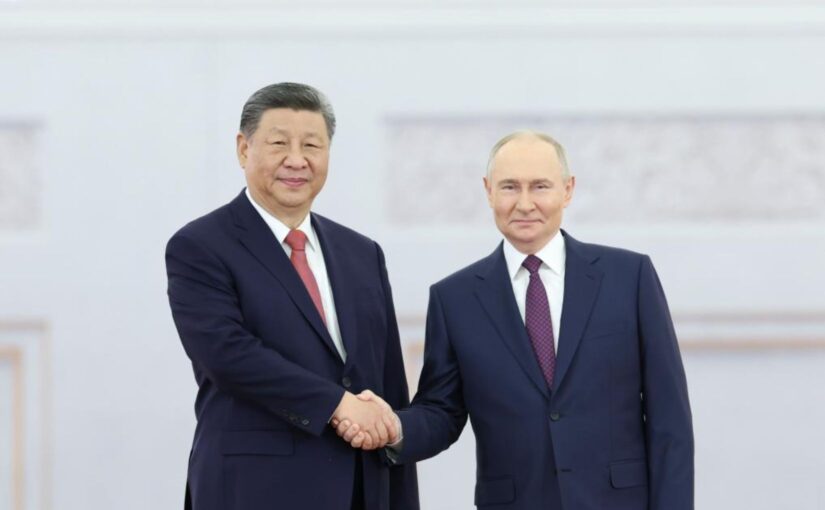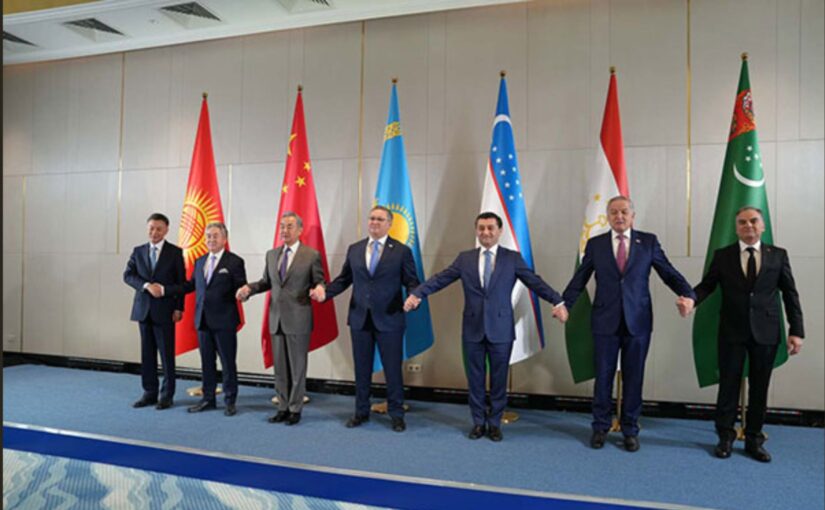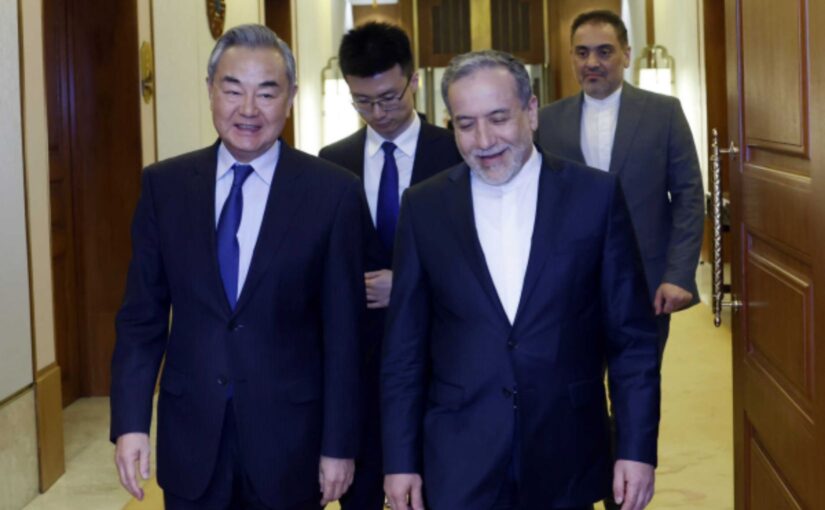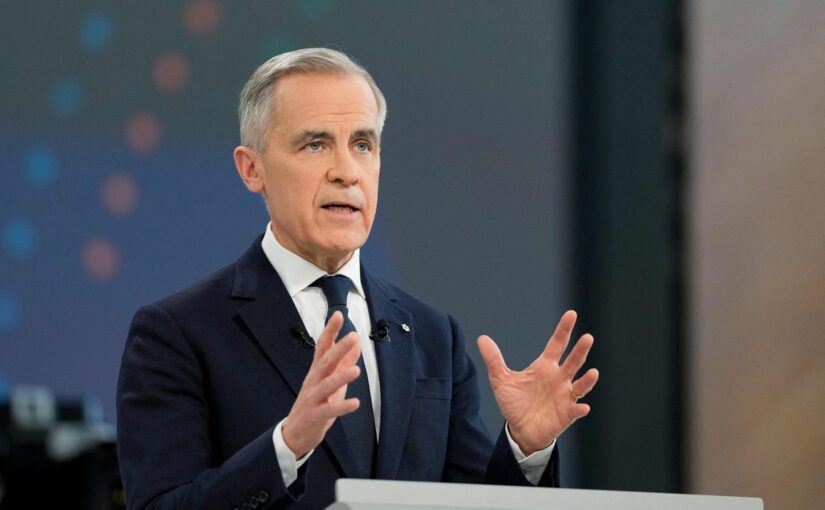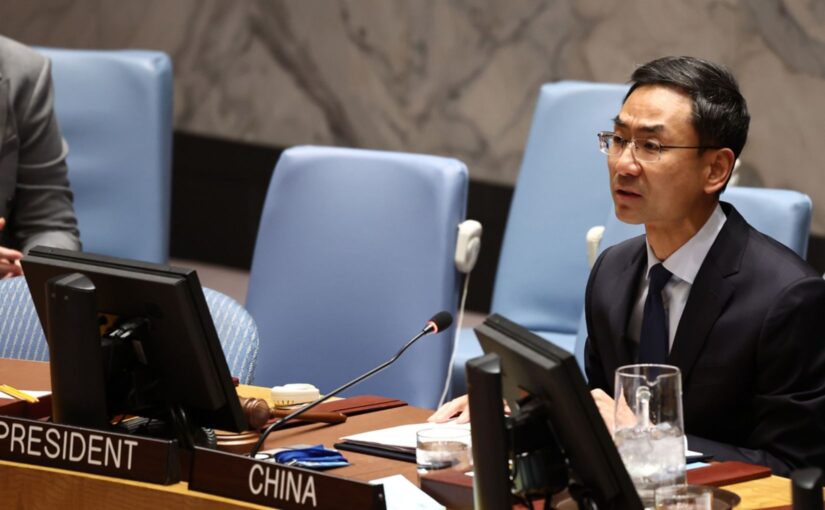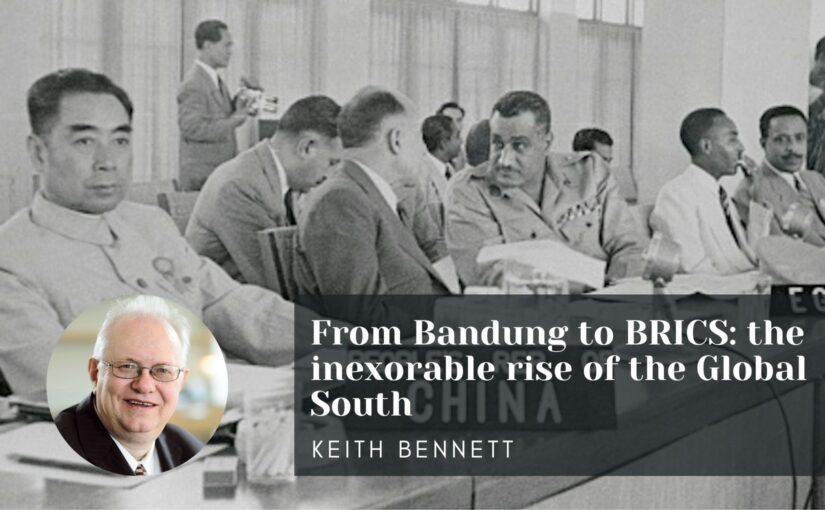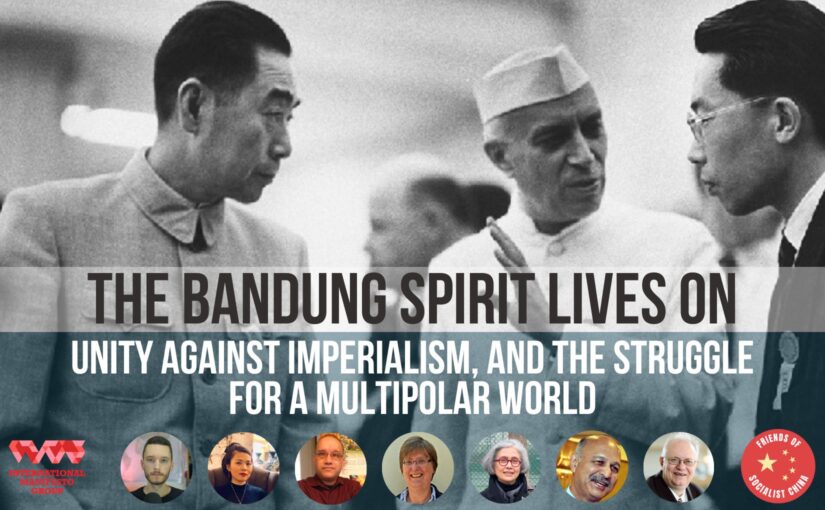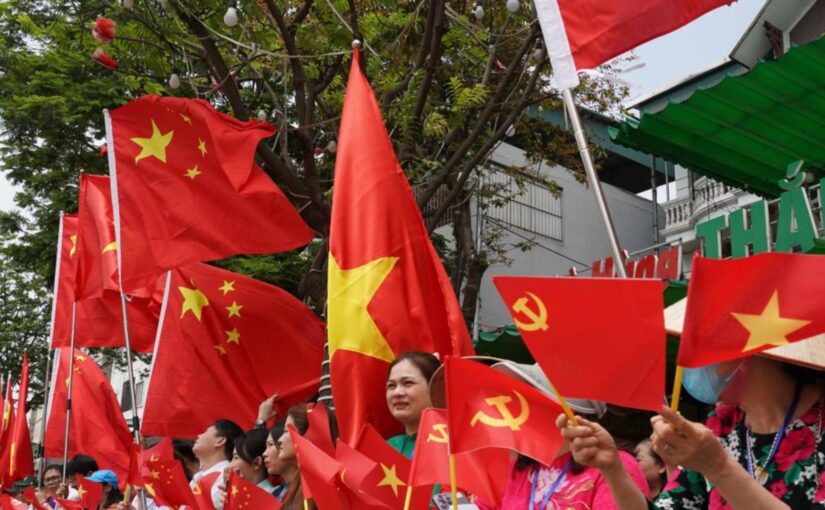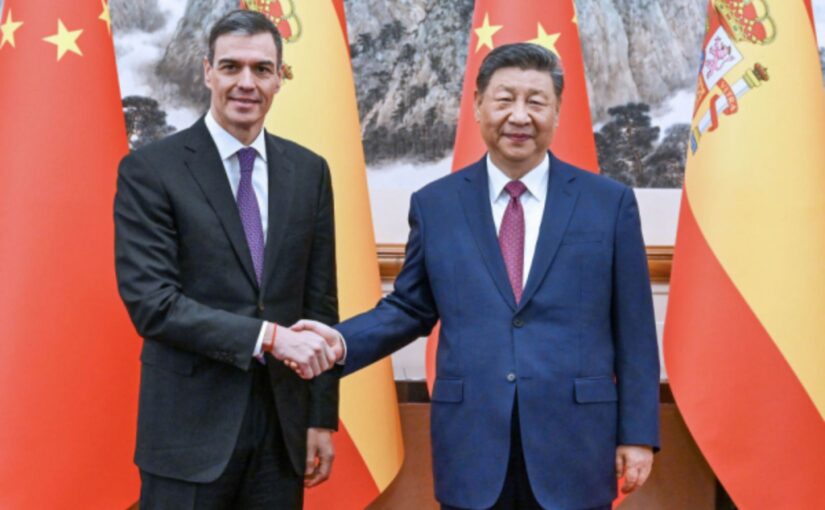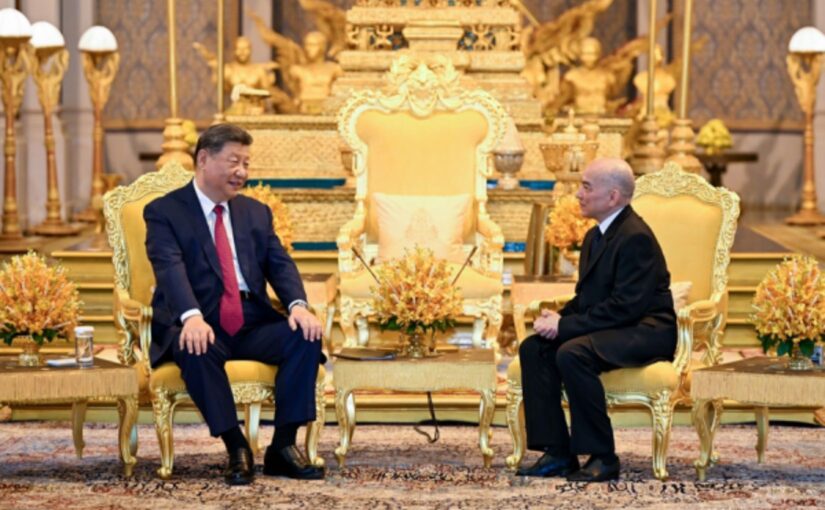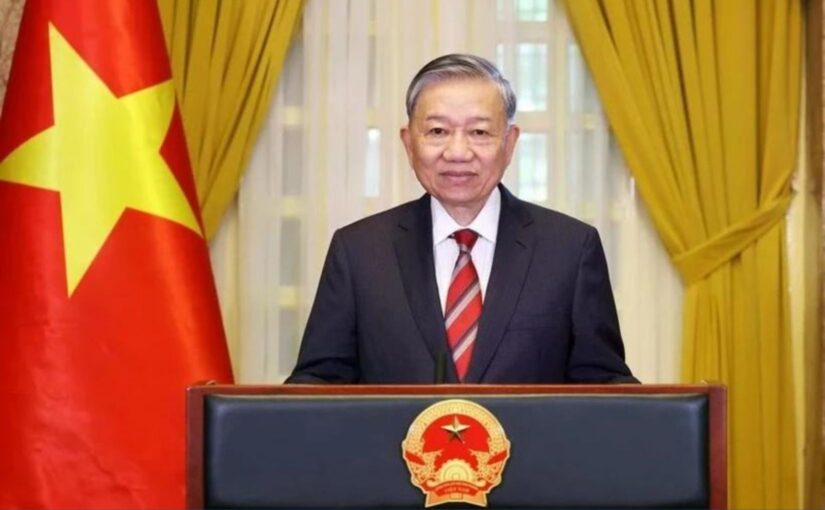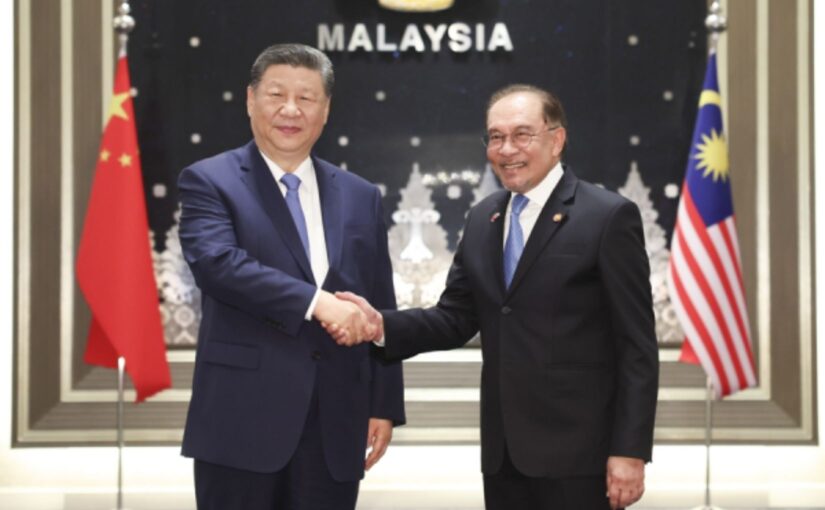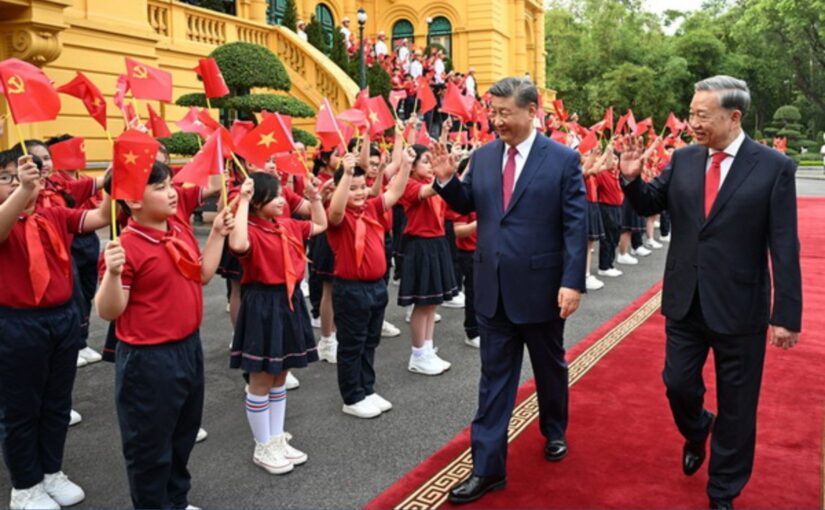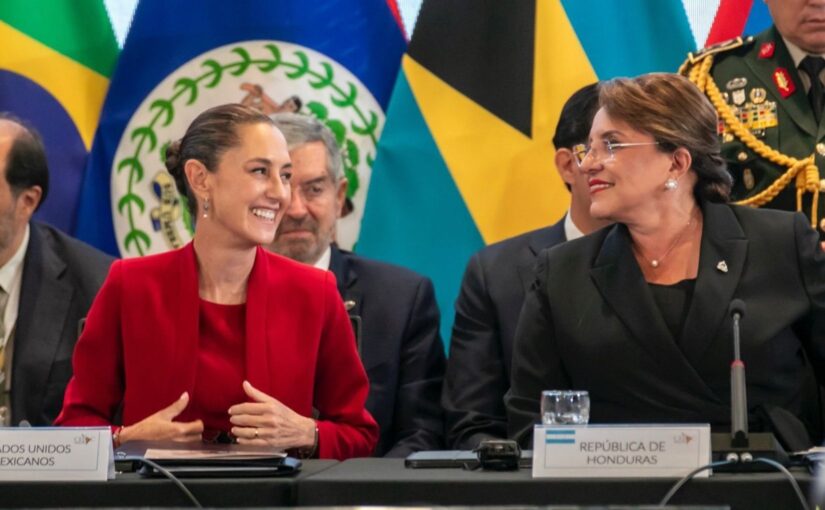The ninth summit meeting of Heads of State and Government of the Community of Latin American and Caribbean States (CELAC) was held in Tegucigalpa, the capital of Honduras, the country holding the organisation’s rotating presidency, on April 9, 2025.
Sending greetings to the summit, Chinese President Xi Jinping noted that the world today is undergoing accelerated changes unseen in a century and that the Global South, including China as well as Latin American and Caribbean countries, is growing with a stronger momentum. CELAC has remained committed to independence, self-reliance and strength through unity, playing an important role in safeguarding regional peace and stability, promoting development and cooperation, and advancing regional integration. He sincerely wished the countries and peoples of Latin America and the Caribbean greater achievements on the path to development and revitalisation, so as to make greater contributions to enhancing the solidarity and cooperation of the Global South.
Xi added that this year, China will host the Fourth Ministerial Meeting of the China-CELAC Forum in Beijing, and all CELAC member states are welcome to attend the meeting in China to discuss ways to foster development and promote cooperation and jointly contribute wisdom and strength to addressing global challenges, advancing global governance reform and safeguarding world peace and stability. [Xi’s reference to all member states is significant as, of the 12 states yet to establish diplomatic relations with China and still maintaining so-called “diplomatic relations” with the authorities on Taiwan island, seven are in the region, namely Belize, Guatemala, Haiti, Paraguay, Saint Kitts and Nevis, Saint Lucia, and Saint Vincent and the Grenadines.]
The summit concluded with the adoption of the Declaration of Tegucigalpa, which was signed by 30 of the 33 member states. The right-wing regimes of Argentina and Paraguay refused to sign, reflecting their close alignment with US imperialism, while, for its part, Nicaragua declined to sign, considering it inappropriate that the document did not explicitly defend Cuba and Venezuela or clearly condemn the genocide of the Palestinian people.
Among the key points in the declaration are:
- Highlighting Latin America and the Caribbean as “a Zone of Peace” adhering to the principles of the UN Charter, international law, democracy, multilateralism, human rights, self-determination of countries, sovereignty, and territorial integrity.
- Rejecting unilateral coercive measures, contrary to international law, including those of a commercial nature.
- Congratulating Honduras for its role at the head of CELAC and handing over the rotating presidency to Colombia for the next year.
The full text may be found here.
In speeches at the summit, Brazilian President Luiz Inácio Lula da Silva said: “Latin America and the Caribbean are currently facing one of the most critical moments in their history. We have come a long way to consolidate our ideals of emancipation; we have abolished slavery, and we have overcome military dictatorships. Now, our autonomy is once again at stake. The moment demands that we put our differences aside. Attempts to restore old hegemonies are looming over the region. History teaches us that trade wars have no winners.”
Incoming Chair of CELAC and President of Colombia, Gustavo Petro, called on the member countries to strengthen regional unity in the face of the new US tariff policy, which will hit the region’s exports hard.
President of Cuba, Miguel Díaz-Canel observed: “The gravity of this hour of multiplied threats demands the multiplication of unitary forces. Only unity can save us. Let us not delay any longer the integration dreamed and fought for, since Bolivar until today, by the bravest sons and daughters of Our America.”
And President of Mexico, Claudia Sheinbaum said: “I invite you to convene a Summit for the Economic Well-being of Latin America and the Caribbean to make greater regional integration a reality based on shared prosperity and respect for our sovereignties… Today more than ever is a good time to recognise that Latin America and the Caribbean require unity and solidarity among its governments and peoples, to strengthen greater regional integration, always within the framework of mutual respect and the observance of sovereignty and independence.”
Agência Brasil subsequently reported that May 12-13 were agreed as the dates for the ministerial meeting in China and that President Lula would attend. The agency further reported that Lula will travel on to China after attending the 80th anniversary celebrations of the Soviet Union’s great victory over Nazi Germany at the invitation of Russian President Vladimir Putin, to be held in Moscow on May 9. It added:
“Lula’s trip to China will mark his second official visit during his third term. His first visit occurred in April 2023, followed by a reciprocal state visit from Xi Jinping in November of the same year, after the G20 Summit in Brazil. The two leaders also met again in 2023 at the BRICS Summit in South Africa.”
The following articles were originally published on the website of the Chinese Foreign Ministry and by Peoples Dispatch and Agência Brasil.
Xi Jinping Sends Congratulatory Letter to the 9th Summit of Heads of State and Government of the CELAC
On April 9, 2025, the 9th summit of Heads of State and Government of the Community of Latin American and Caribbean States (CELAC) was held in Honduras, the country holding the rotating presidency. President Xi Jinping sent a congratulatory letter to the summit.
Xi Jinping noted that the world today is undergoing accelerated changes unseen in a century and that the Global South, including China as well as Latin American and Caribbean countries, is growing with a stronger momentum. CELAC has remained committed to independence, self-reliance and strength through unity, playing an important role in safeguarding regional peace and stability, promoting development and cooperation, and advancing regional integration. Xi Jinping sincerely wishes the countries and people of Latin America and the Caribbean greater achievements on the path to development and revitalization, so as to make greater contributions to enhancing the solidarity and cooperation of the Global South.
Xi Jinping stressed that the relations between China and Latin American and Caribbean states (LAC) have withstood the test of changes in the international landscape and entered a new stage marked by equality, mutual benefit, innovation, openness and tangible benefits for the people. The two sides have continuously deepened political mutual trust, expanded practical cooperation, and enhanced people-to-people exchanges, delivering benefits to the people of both sides and setting an example for South-South cooperation. China is willing to work with countries in the region to make new progress in building a China-LAC community with a shared future. This year, China will host the Fourth Ministerial Meeting of the China-CELAC Forum in Beijing, and all CELAC member states are welcome to attend the meeting in China to discuss ways to foster development and promote cooperation, and jointly contribute wisdom and strength to addressing global challenges, advancing global governance reform and safeguarding world peace and stability.
In the face of new geopolitical challenges, CELAC proposes greater unity
After several months of preparation and three days of intense meetings at the highest diplomatic level, the IX Summit of the Community of Latin American and Caribbean States (CELAC), which brings together the 33 countries of the region, concluded in Tegucigalpa, Honduras on April 9.
The high-level meeting concluded with a joint agreement called the Declaration of Tegucigalpa, which was signed by 30 of the 33 member states. Argentina and Paraguay refused to sign the agreement, in line with the foreign policy of the ultra-right-wing Javier Milei and the right-wing Santiago Peña, who reject any attempt at regional unity outside the United States.
For its part, Nicaragua opposed the signing of the document because it considered it inappropriate that it does not support the defense of Cuba and Venezuela, as well as a clear condemnation of the Palestinian genocide.
The key points of the Declaration of Tegucigalpa
Among the most important points of the agreement are:
- Committing to strengthening CELAC as a method for political concentration among member countries.
- Highlighting Latin America and the Caribbean as “a Zone of Peace” adhering to the principles of the UN Charter, International Law, democracy, multilateralism, human rights, self-determination of countries, sovereignty, and territorial integrity.
- Rejecting unilateral coercive measures, contrary to international law, including those of a commercial nature.
- To join efforts toward ensuring that someone from Latin America and the Caribbean becomes the next Secretary General of the UN.
- Congratulating Honduras for its management at the head of CELAC and hand over the Presidency pro tempore of the organization to Colombia for one year to carry out projects related to “energy (energy transition and interconnection); human mobility; health and health self-sufficiency; environment and climate change; Indigenous peoples and Afro-descendants; science, technology and innovation; connectivity and infrastructure; strengthening of trade and investment; transnational organized crime; education; gender equality; among others.”
- Supporting Haiti and endorsing the support of each of the countries, according to their capacities to “reestablish an environment of human security” that allows for the normalization ‘“Of the political, economic, and social situation, with a comprehensive development approach.”
The ghost of Trump at the meeting
Undoubtedly, the recent tariff and immigration measures of Donald Trump’s administration marked a good part of the concerns of the presidents, foreign ministers, and prime ministers who attended Tegucigalpa. In a way, CELAC was created to find agreements outside Washington’s direct influence over the region. However, the plurality of political positions, in addition to external political influences in Latin America and the Caribbean, have not allowed the consolidation of a long-term international agenda.
Lula: “Only unity will prevent us from becoming pawns again”
However, despite the differences in political positions that often prevent reaching major agreements, according to the President of Brazil, Luiz Inácio Lula da Silva, the creation of CELAC “Is the most important decision of the region in 500 years… If we remain separated, the Latin American and Caribbean communities run the risk of returning to the condition of a zone of influence in a new division of the globe between superpowers. Latin America and the Caribbean must redefine their place in the emerging global order. We need a structured program of action.”
Lula also indirectly recalled that the unity of the region is imperative at a time when geopolitics is beginning to redefine itself, among other things, due to the decisions of the Trump administration: “Latin America and the Caribbean are currently facing one of the most critical moments in their history. We have come a long way to consolidate our ideals of emancipation; we have abolished slavery, and we have overcome military dictatorships. Now, our autonomy is once again at stake. The moment demands that we put our differences aside. Attempts to restore old hegemonies are looming over the region. History teaches us that trade wars have no winners.”
Petro: “The agenda of solitude has only two names – migration and blockade”
For his part, the President of Colombia, Gustavo Petro, called on the countries to strengthen regional unity in the face of the new US tariff policy, which will hit the region’s exports hard. He also stressed that there are currently two ways of resolving conflicts at the international level: multilateralism (referred to in the final agreement) and “solitude.”
“Today, there is a certain tendency for us to kill each other and live a century of solitude…This is done to preserve a power that no longer does humanity any good…The agenda of solitude has only two names: migration and blockade. The aid agenda is more complex and difficult, but it is much more interesting for all of us present here, representatives of our nations.”
On Trump’s migration policy and the arrival of Venezuelan migrants to El Salvador, Petro said: “The loneliness agenda proposes to treat the migrant as a criminal. Migrants should not arrive in chains to our land, because if we accept a single migrant in chains, not only do we go back to the time of Torrijos, but we go back to the time when the first boatloads of Africans arrived in chains.”
Díaz-Canel: “Only unity can save us”
For his part, the President of Cuba, Miguel Díaz-Canel, said about the IX Summit of CELAC, “The gravity of this hour of multiplied threats demands the multiplication of unitary forces. Only unity can save us. Let us not delay any longer the integration dreamed and fought for, since Bolivar until today, by the bravest sons and daughters of Our America.”
Sheinbaum calls for an economic summit: “Shared prosperity and sovereignty”
Regarding the urgency of finding economic alternatives in the face of an increasingly complex world, the President of Mexico, Claudia Sheinbaum, called for a meeting to discuss possible joint strategies: “I invite you to CELAC to convene a Summit for the Economic Well-being of Latin America and the Caribbean to make greater regional integration a reality based on shared prosperity and respect for our sovereignties… Today more than ever is a good time to recognize that Latin America and the Caribbean require unity and solidarity among its governments and peoples, to strengthen greater regional integration, always within the framework of mutual respect and the observance of sovereignty and independence.”
Lula to visit China in May for another meeting with Xi Jinping
President Luiz Inácio Lula da Silva will visit China again in May for another meeting with President Xi Jinping. The trip will take place during the China–CELAC Summit, which brings together China and the countries of the Community of Latin American and Caribbean States. The dates—May 12 and 13—were agreed upon during the 9th CELAC Summit, held in Honduras and attended by Lula.

The trip was confirmed by the Planalto presidential palace and is expected to follow the president’s visit to Russia.
At the invitation of President Vladimir Putin, Lula will attend celebrations marking the 80th anniversary of the Soviet Union’s victory over Nazi Germany in World War II. The event—Russia’s most important national holiday—takes place on May 9 and features a grand civic-military parade in Moscow.
International trade
The meeting between Lula and Xi Jinping will occur amid the escalation of the trade war between the United States and China, the world’s two largest economies. The imposition of reciprocal tariffs, initiated by US President Donald Trump, has led to successive stock market turbulence and heightened concerns about a potential global recession.
Lula’s trip to China will mark his second official visit during his third term. His first visit occurred in April 2023, followed by a reciprocal state visit from Xi Jinping in November of the same year, after the G20 Summit in Brazil. The two leaders also met again in 2023 at the BRICS Summit in South Africa.
